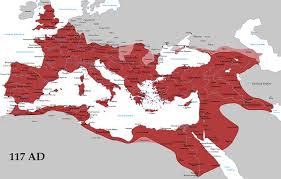
Introduction
Rome, often referred to as the ‘Eternal City’, is a captivating blend of history, art, and culture that continues to draw millions of visitors each year. Its significance extends beyond its beautiful architecture and rich historical sites; Rome stands as a testament to the enduring legacy of the Roman Empire and the evolution of Western civilization. Understanding the relevance of Rome is crucial for anyone interested in history, culture, or world politics.
The Historical Significance of Rome
Rome has been at the heart of the Western world for nearly three millennia. Founded in 753 BC, the city grew from a small settlement on the Tiber River into the capital of the vast Roman Empire. Important landmarks, such as the Colosseum, the Roman Forum, and the Pantheon, showcase the architectural innovation and prowess of ancient Rome. Recent archaeological discoveries, including the remnants of the old Roman city streets, indicate that much of Rome’s ancient infrastructure remains hidden beneath its modern surface, sparking interest in further excavations and studies.
Recent Events and Developments
In 2023, Rome continues to face challenges and opportunities as it balances preservation of its rich heritage with modern urban development. The city is taking notable steps toward sustainable tourism, encouraging visitors to explore lesser-known neighborhoods, which can help disperse the crowds from popular tourist areas. This shift is vital as Rome seeks to protect its historic sites while providing economic support to local businesses. Furthermore, an increase in partnerships with tech initiatives is enhancing visitor engagement through virtual tours and interactive experiences centered on Rome’s historical and cultural narratives.
Conclusion
Rome is more than a travel destination; it is a living museum that encapsulates the essence of human history and culture. As the city enters a new era of sustainable tourism, it holds immense potential for future generations seeking knowledge and inspiration from its storied past. Observers and historians alike will be watching how Rome manages its dual identity as a historical treasure and a modern metropolis, ensuring its legacy endures for centuries to come.



